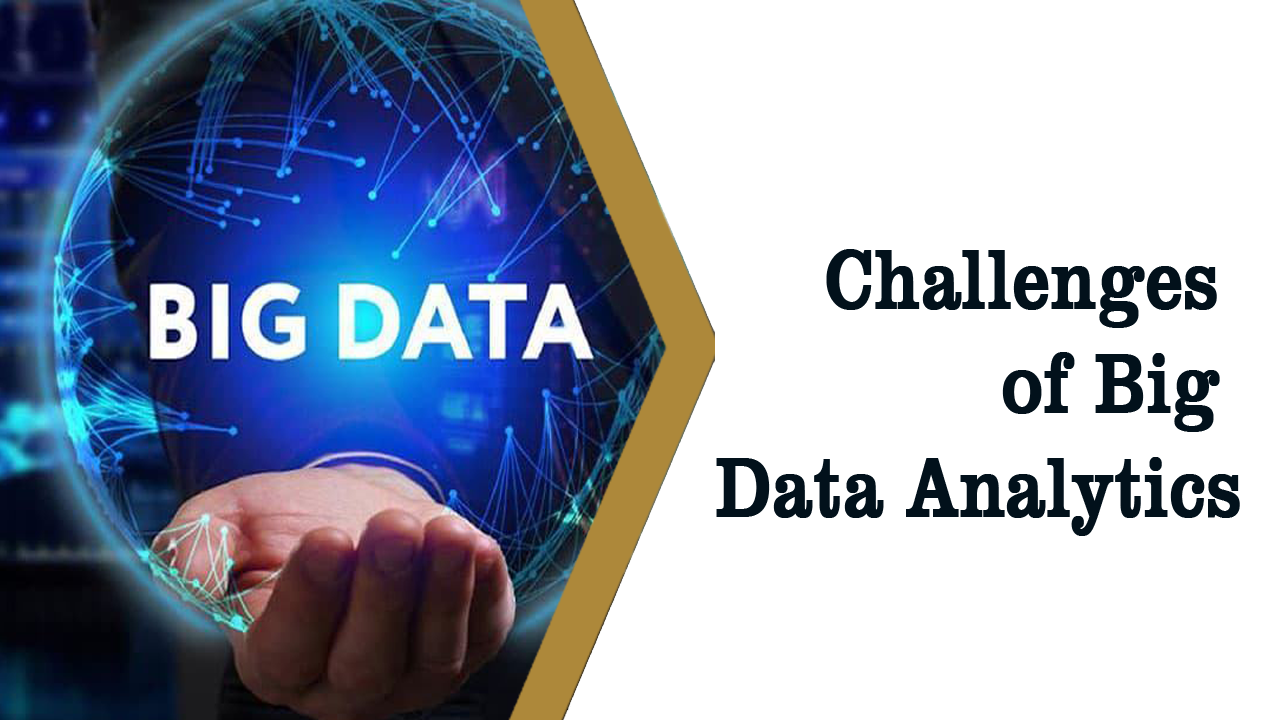Introduction Challenges of Big Data Analytics
Big Data Analytics has revolutionized the way businesses operate, making it possible to analyze vast amounts of data and uncover hidden patterns and insights. However, as with any technology, Big Data Analytics also comes with its own set of challenges. In this article, we will explore the challenges of Big Data Analytics and how organizations can overcome them. 
Data Quality
One of the biggest challenges of Big Data Analytics is ensuring the quality of the data. Big Data Analytics relies on large and complex data sets, which can be incomplete, inaccurate, or inconsistent. This can lead to erroneous insights and decisions. To address this challenge, organizations need to implement data governance practices that ensure data quality. This includes defining data standards, establishing data validation rules, and monitoring data quality on an ongoing basis.
Data Security and Privacy
Another significant challenge of Big Data Analytics is data security and privacy. With the increasing amount of data being generated, there is a risk of data breaches and cyber attacks. Organizations need to take steps to ensure that their data is secure and that they comply with regulations such as GDPR and HIPAA. This includes implementing robust security measures such as encryption, access controls, and monitoring tools.
Skilled Professionals
Big Data Analytics requires a diverse set of skills, including statistics, machine learning, programming, and data visualization. However, there is a shortage of skilled professionals in this field. Organizations need to invest in training and development programs to build the skills of their employees. They can also partner with academic institutions to recruit students with the necessary skills.
Technology Infrastructure
Big Data Analytics requires a robust technology infrastructure to handle the volume, velocity, and variety of data. Organizations need to invest in the necessary hardware, software, and networking infrastructure to support Big Data Analytics. This includes high-performance computing systems, data storage systems, and data integration tools.
Integration with Existing Systems
Many organizations have existing systems and applications that are not designed to handle Big Data Analytics. This can make it challenging to integrate Big Data Analytics with these systems. Organizations need to develop strategies for integrating Big Data Analytics with existing systems. This includes identifying the key data sources and ensuring that the data can be accessed and analyzed.
Overcoming the Challenges of Big Data Analytics
Overcoming the challenges of Big Data Analytics requires a strategic approach. Here are some strategies that organizations can use: 1. Develop a Data Strategy: Organizations need to develop a data strategy that outlines their goals, data governance policies, and data quality standards. This strategy should also include plans for data security and privacy. 2. Invest in
Skilled Professionals: Organizations need to invest in training and development programs to build the skills of their employees. They can also partner with academic institutions to recruit students with the necessary skills. 3. Implement a Robust Technology Infrastructure: Organizations need to invest in the necessary hardware, software, and networking infrastructure to support Big Data Analytics. This includes high-performance computing
systems, data storage systems, and data integration tools. 4. Adopt a Cloud-Based Approach: Cloud-based solutions can help organizations overcome the challenges of Big Data Analytics. Cloud-based solutions offer scalability, flexibility, and cost-effectiveness. 5. Develop Data Integration Strategies: Organizations need to develop strategies for integrating Big Data Analytics with existing systems. This includes identifying the key data sources and ensuring that the data can be accessed and analyzed.
Conclusion Challenges of Big Data Analytics
Big Data Analytics offers significant benefits to organizations, including improved decision-making, operational efficiency, and competitive advantage. However, it also comes with its own set of challenges, including data quality, data security and privacy, skilled professionals, technology infrastructure, and integration with existing systems. Organizations that address these challenges strategically can unlock the full potential of Big Data Analytics
In today’s data-driven world, big data analytics has become a cornerstone of strategic decision-making across various industries. Organizations are increasingly leveraging massive datasets to glean insights, predict trends, and drive innovation. However, despite its vast potential, big data analytics comes with a set of significant challenges. Understanding these hurdles is crucial for organizations aiming to harness the power of their data effectively.
1. Data Quality and Integration
One of the primary challenges in big data analytics is ensuring data quality. With the influx of data from diverse sources, maintaining accuracy and consistency becomes a complex task. Inconsistent, incomplete, or erroneous data can lead to misleading insights and flawed decision-making.
Additionally, integrating data from various sources—such as social media, transactional systems, and IoT devices—presents another challenge. Organizations must develop sophisticated data integration strategies to combine these disparate sources into a cohesive dataset suitable for analysis.
2. Scalability Issues
Handling and processing large volumes of data require robust infrastructure. Traditional data processing systems often struggle with the scalability needed for big data analytics. This issue necessitates investment in scalable technologies and platforms, such as distributed computing and cloud services, which can handle the growth of data and the complexity of queries.
3. Data Security and Privacy
As data volumes grow, so do concerns about security and privacy. Big data often includes sensitive information that must be protected from unauthorized access and breaches. Organizations need to implement stringent security measures and comply with regulations such as the General Data Protection Regulation (GDPR) and the California Consumer Privacy Act (CCPA). Ensuring data privacy while still allowing for meaningful analysis is a delicate balance that organizations must navigate.
4. Skill Shortages
The field of big data analytics requires specialized skills, including expertise in data science, machine learning, and statistical analysis. There is a significant shortage of professionals with these skills, making it challenging for organizations to build and maintain effective analytics teams. The need for continuous learning and adaptation to new tools and technologies further complicates this challenge.
5. Data Governance
Effective data governance is essential for managing data quality, security, and compliance. Organizations must establish clear policies and procedures for data management, including data ownership, access controls, and data lifecycle management. Poor data governance can lead to inefficiencies and increased risks, undermining the value of big data initiatives.
6. Real-Time Processing
In many scenarios, organizations require real-time or near-real-time insights to make timely decisions. Processing large volumes of data in real-time presents technical challenges, including the need for high-speed data ingestion and processing capabilities. Achieving real-time analytics requires advanced technologies and architectures, such as stream processing and event-driven systems.
7. Data Complexity
Big data is often characterized by its complexity, including various data types (structured, unstructured, semi-structured) and formats. Analyzing complex data requires sophisticated tools and techniques, such as natural language processing (NLP) for unstructured text and advanced analytics for complex patterns. Managing and making sense of this complexity adds another layer of difficulty.
8. Cost Considerations
The infrastructure, tools, and talent required for big data analytics come with significant costs. Organizations must weigh these costs against the potential benefits of their analytics initiatives. Budget constraints can limit the scope and effectiveness of big data projects, making it essential to carefully plan and prioritize investments.
9. Change Management
Implementing big data analytics often involves significant changes in organizational processes and culture. Successful adoption requires buy-in from stakeholders, changes in workflows, and adjustments to decision-making processes. Managing this change effectively is crucial for realizing the benefits of big data analytics.
10. Ethical Considerations
With the power of big data comes the responsibility to use data ethically. Issues such as algorithmic bias, data misuse, and the impact of automated decisions on individuals and society must be carefully considered. Organizations must develop ethical guidelines and practices to ensure that their use of data aligns with societal values and norms.
